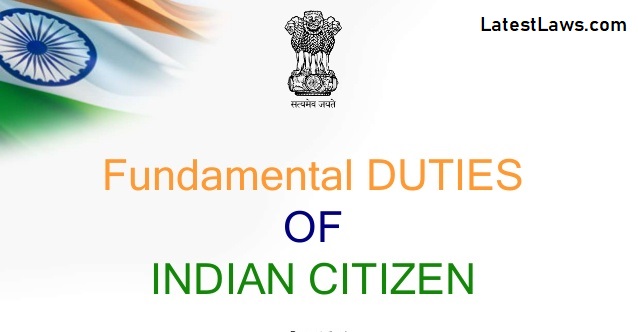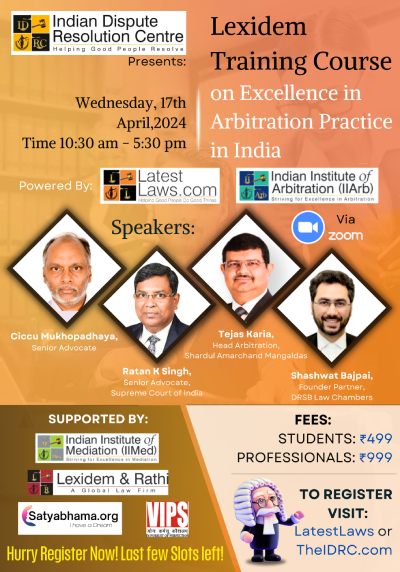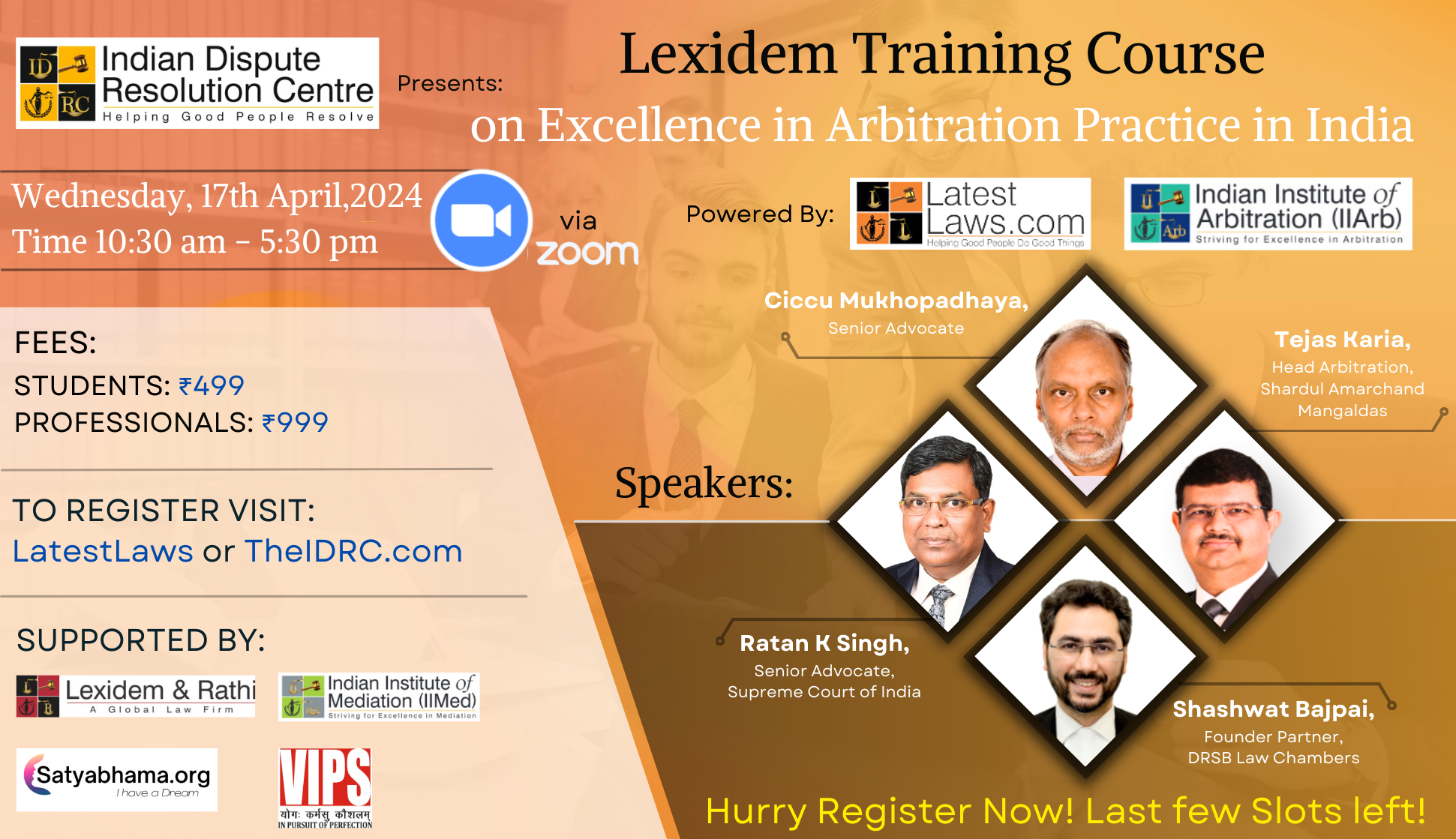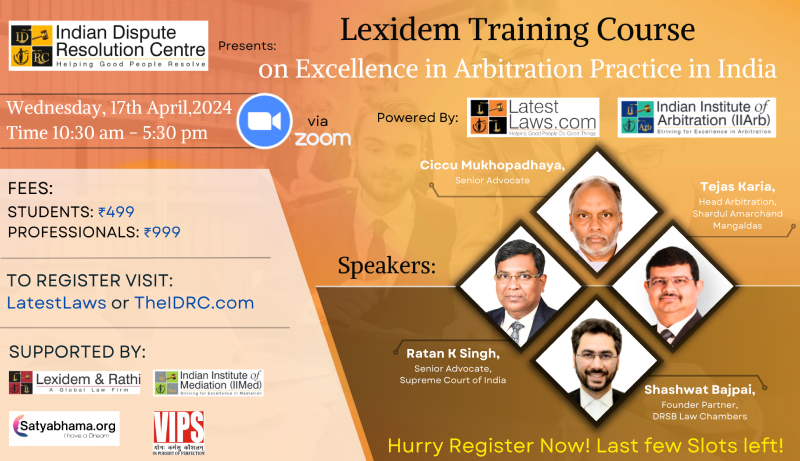The Author, Hari Haran is a 2nd year Law Student pursuing BCA.LLB(Hons.) in Tamil Nadu Dr.Ambedkar Law University 'School of excellence in Law'. He is Campus Ambassador at LatestLaws.com.
Introduction:
The preamble of the Indian Constitution starts with ‘we the people of India’. Yes, we the people, we the Indian citizens are supreme compared to the other 3 sovereign authorities of the State. We decide the members of the legislative body further we are the executive and the judicial body. We are the three organs of the sovereign State. So we must be accountable to ourselves. By following moral duties all can achieve accountability (it is one of the ways). One cannot be more accurate in practicing his/her duty or with his/her good deeds. A commitment of mistake is usual but the question is to what extent the mistake should be? Likewise one cannot follow all moral duties at all-time. But knowing the knowledge of fundamental duties and following the basic fundamental duties proposed by the State is a must to attain excellence in all spheres of achievement towards the Nation.
What is a fundamental duty?
Fundamental duty is a moral and socio-civic duty that every responsible citizen should follow and practice. The strict following of fundamental duties is quite imperative but failure to do so will not impose any sanctions. It is just a remainder and mere obligation to the citizens who live in a democratic country. Indian citizens enjoy certain fundamental rights and duties given by the Constitution. Every patriotic citizen must try to know the importance of fundamental duties beforehand the fundamental rights. The fundamental duties in India are given under article 51A of PART – IV A of the Indian Constitution.
Origin:
The fundamental duties take birth at the Dark Age of democracy. It is considered to be the black period of the Indian Constitution. During this period Congress Government cuts back certain fundamental rights and made changes in the basic structure of the Constitution. Internal Emergency was declared by Prime Minister Indira Gandhi from 25th June 1975 to 21st March 1977. The 42nd amendment act introduced during the emergency and came to force in 1976. Fundamental duties were introduced in this 42nd amendment 1976 based on the report given by Swaran Singh Committee. This 12 member committee headed by Swaran Singh was set up under the order of the President of the Congress party and was instructed to frame recommendations for the amendment and report the same. The Congress party accepts the recommendation with the exclusion of certain ideas made by the committee and introduced a new PART - IV A and article 51A with 10 fundamental duties in the Indian Constitution. Further, in the 86th amendment act 2002, the 11th fundamental duty was introduced.
The Constitution of India was adopted from various constitutions of the world. The fundamental duties were adopted from the constitution of the Union of Soviet Socialist Republic (USSR). The committee also took an overview of article 29(1) of the Universal Declaration of Human Rights, 1948 which confers the duty of individuals towards the community. Based on these references the Swaran Singh Committee framed the fundamental duties.
Why should we follow Fundamental Duty?
Every accountable and responsible citizen of India must know the fundamental duty provided by the Constitution. The need to follow becomes mandatory in one hand but failed to do so will not impose any legal sanction on the other hand. This unrestricted nature of these duties paved way for the observance or ignorance. Thus the fundamental duties become a mere obligation. The constitution of India provides some fundamental rights and duties in the PART - III and PART – IV A. An Individual should know that rights and duties cannot go separate. To ensure one's claim towards the fundamental right the fundamental duties followed by that person will be checked before the court of law. Failure of performance of duty the person claims for his/her fundamental rights becomes invalid.
As an instant remainder to the citizens following and practicing fundamental duty is necessary. This should be realized by every citizen of the State. We people are the State and the State is by the people. Every responsible individual must understand the need to follow the fundamental duties to attain unity and to develop the integrity of the nation.
“The price of greatness is responsibility” – Winston Churchill.
What are the Fundamental Duties?
Under PART – IV A of the Indian Constitution article 51A deals with the fundamental duties. These duties are inserted by the 42nd and 86th amendment act of the constitution. A fundamental duty plays a vital role in the society of every individual. The phrase mentioned in article 51A itself indicates that the duties are obligatory since it says that, 'It shall be the duty of every citizen of India'. It does not impose any command to follow the duty. It uses the word 'shall' and not must. Thus article 51A lays down a total number of 11 fundamental duties they are as follows:
- 51A (a) – to abide by the constitution and respect its ideals and institutions, the National Flag and the National Anthem; under the Indian Constitution, all the citizens of the State should obey the provisions mentioned in the Constitution. All the citizens are directed to respect and follow wisely the National ideals. Scilicet, accept the given JUSTICE of social, economic and political justices’; cautious use of LIBERTY of thought, expression, belief, faith, and worship; achieve wholly the EQUALITY of status and opportunity; ensure that the FRATERNITY is attained by assuring the dignity of the individual and the unity and integrity of the Nation. The constitution also instructs every Indian citizen should obey and honor the National Flag and National Anthem.
- 51A (b) – to cherish and follow the noble ideals which inspired our national struggle for freedom; every Indian must protect and care the virtuous ideals which includes equality of justice, freedom to communicate, commonness in society, hand-in-hand livelihood which motivate our national struggle for freedom. These ideals determine an individual to live peacefully in a collective society.
- 51A (c) – to uphold and protect the sovereignty, unity, and integrity of India; the most important duty of Indian citizens is to lift the country to a well-developed nation. The unity, sovereignty, and integrity of the nation must not go imperil in any situation. If there is no unity then there is no Country. All citizens must live united in a diverse society. The protection of internal and external sovereignty of the Nation becomes necessary to be an independent country. People are sovereign of the State it is in the hands of people to protect the sovereignty of the nation. This implicitly denotes article 19(2) under PART – III of the Indian Constitution restricts the freedom of speech of the citizens to ensure integrity of the Nation. Hence with unity and sovereignty, India achieves integrity.
- 51A (d) – to defend the country and render national service when called upon to do so; it is one of the most important duties of every individual to protect the nation from alien enemies. Definitely, this duty is an exception from all the armed forces, naval forces, air forces, police forces, etc. Since they all already under the duty to protect the country. The ordinary citizens are not exempted from this duty. They should be alert to render service at any time to protect themselves and the country from the external enemies of other Nations.
- 51A (e) – to promote harmony and the spirit of common brotherhood amongst all the people of India transcending religious, linguistic and regional or sectional diversities; to renounce practices derogatory to the dignity of women; India is said to be ‘Unity in Diversity’ for its vast religious, linguistic and cultural practices. One Nation, one flag, and solo citizenship are enough to promote harmony and spirit of common brotherhood amongst all people. It is our duty to stop dishonoring practices that let down the dignity of women.
- 51A (f) – to value and preserve the rich heritage of our composite culture; Our India is one of the vast ancient civilization of the world. Our cultural practices are considered to be the oldest rich heritage. It is believed that the cultural norms of our Indian society are followed from the old ancient period. As responsible citizens it is our duty to preserve the valuable culture and should take steps to pass it to the future generation.
- 51A (g) – to protect and improve the natural environment including forests, lakes, rivers and wild life, and to have compassion for living creatures; protection of environmental natural resources is the most important fundamental duty to be followed by every individual. Without nature not only animals’ even humans with sixth sense can’t live in this world. Nature gives us essential needs such as air to breath, water to drink, and food to eat and live. Hence protection of natural resources is the foremost duty of every citizen. This duty is protected constitutional provisions as a fundamental right by article 21, right to life under PART – III and also by article 48A under PART – IV impose a duty on the state to take necessary action to protect, improve and safeguard the forests and wildlife.
- 51A (h) – to develop the scientific temper, humanism and the spirit of inquiry and reform; the reason for practicing is to develop ourselves day by day. Therefore the question arises that how the practice should be? It must be scientifically tested including the spirit of inquiry which clears all the struggle of doubts and improves us with humanism to accept and able to live in this fast-changing society. “Only the fittest will survive” – Charles Darwin.
- 51A (i) – to safeguard public property and to abjure violence; India is also called as ‘Peace Loving Country’. The act of violence becomes usual in India. It is the duty of Indian citizens to protect and safeguard the public property from the act of violence like strike, unlawful assembly, etc. The concept of non-violence taught by the father of our nation Mahatma Gandhi should be followed in all parts of the Country.
- 51A (j) – to strive towards excellence in all spheres of individual and collective activity so that the nation constantly rises to higher levels of endeavour and achievement; today women are equally working with men. The equality of freedom not only improves the life of the individual and also improves the power of the Nation. Thus individual work and collective work with complete dedication of the people helps the Nation constantly rise to the higher levels of endeavour and achievement.
- 51A (k) – who is a parent or guardian to provide opportunities for education to his child or, as the case may be, ward between the age of six and fourteen years; this article was recently added to the fundamental duties in 2002 by the 86th amendment of the Constitution. To increase the rate of literacy in the country and considering the future of a better India. Free and compulsory education must be provided to all the children of age between six and fourteen years irrespective of caste, religion, race, sex, or place of birth. This duty refers to the parents or guardians to give compulsory education for the child. This right is protected by the Indian Constitution that ensures the right to education is a fundamental right under Article 21A of PART – III. And it is also the duty of the State to provide free education to children age between six to fourteen years.
Binding and Importance:
The fundamental duties under article 51A of PART – IV A of the Indian Constitution binds wholly and solemnly only on the Indian citizens. Thus the PART – IV A does not refer to non-citizens or foreign nationals. So the binding nature of article 51A is solely conferred on the Indian citizens.
These fundamental duties make a better State. The importance of knowing the duties and followed accurately by the people will make the State raise in many aspects. The below are the lists of some importance of fundamental duties:
- Reduction of illiterates in the country.
- Nature will be preserved and protected hence there will be a guaranteed good environment to live in the future.
- To claim fundamental rights one must be fulfilled with his duties and it will be checked before the court of law. If one doesn’t fulfill his/her fundamental duties the respective person’s claim of fundamental rights becomes difficult.
- The common brotherhood with the collectivity activity of people leads the Country to excellence in all spheres of matter.
- It alerts the citizens not to indulge in any offense against the government.
- Helps to interpret ambiguous statutes.
- Promotes unity and integrity among the people which makes a Sovereign Country.
- Our heritage is protected and given to the next generation.
Level of Enforcement:
The clauses of article 51A convey fine sentiments. There are no primary legal sanctions to impose on an individual in a failure of performance. Thus the question of enforcement of fundamental duties takes a "back seat". Some duties are protected by law and already being enforced through ordinary law. For example, there are laws available on offenses against the State in the Indian Penal Code, 1860 which protects any activity disrupting the sovereignty and territorial integrity of the State. But some duties mentioned in article 51A appear to be legally unenforceable for their vast and imprecise nature. The duties contained in clause (b), (f), (h), and (j) do not express any ideas or ideals nor appear to be capable of legal enforcement. Hence they can be regarded as a directory.
Article 31C also gives authority to parliament to make any suitable laws to enforce some other duties. Yet in Surya Narain v UOI1, it was held that these duties being duties of individual citizens cannot be enforced through a writ of mandamus. On the other hand, these duties can be promoted through constitutional means like article 51A can be used to interpret statutes. In the case of Re Ramlila Maidan Incident2, it has been held that when the courts are called upon to examine the reasonableness of legislative restriction on the exercise of freedom, the fundamental duties enunciated under Article 51A are of relevant consideration. This case states the word fundamental with rights refers that if any law made contrary to the fundamental right can be declared void but the word fundamental with duties is a regulative sense of behavior that each citizen and state should achieve.
The role of Accountability:
The Concise Oxford Dictionary defines accountability as 'the fact of being responsible for your decisions or actions and expected to explain to them when you are asked’. Accountability plays a significant role in every individual's contribution towards the society. Since every elected member of the legislative assembly is answerable to the people. This makes them responsible to do their duty. Not only the legislative body, all the three organs of the State namely legislature, executive, and judiciary are interconnected with each other. Hence they are accountable to one another. Indisputably work done by an individual is perfect when he/she is answerable to the same. The level we are accountable we get good India. Every Indian citizen should be responsible and accountable for his/her Nation. Thus the collective activity of accountability leads the country to develop in all spheres of matters.
"Restoring responsibility and accountability is essential to the economic and fiscal health of our nation."― Carl Levin
Accountability with fundamental duty:
To make sure the fundamental duties to be followed by every citizen there doesn't need to be a law binding with a legal sanction in a failure of performance. The conduct of accountableness is enough. When one follows fundamental duties with proper accountability there is no need for legal sanctions. As responsible citizens, we should do our duty and there must be a fear of good consciousness. It is difficult to achieve the complete follow of fundamental duty but can be achieved by every individual with the collective responsibility of the State. There is no duty to state to promote and make aware of the fundamental duty. We are the state it is in our hands to strive towards success. The collective responsibility of each individual refers to the collective responsibility of the State. Hence the complete follow of fundamental duty is achieved only when accountableness is compacting (tightly-packed) with all the citizens of the Nation.
Case studies of fundamental duties:
In M.C.Mehta (2) v Union of India3, the Supreme Court held that it is compulsory for the entire educational institute to teach a lesson on preservation, protection, and improvement of the natural environment minimum one hour in a week. It is the duty of the Central government to ensure the same. The central government should also distribute books free of cost in all the institutes under article 51A (g) and also raise awareness among people towards a clean environment. The government should organize 'keep the city clean', ‘keep the country clean’ and ‘keep the village clean’ at least once in a year.
Sarbananda Sonowal v UOI4, in considering the question of locus standi to challenge the Constitutionality of provisions of the Illegal Migrants (Determination by Tribunals) Act. 1983. The Court relied on Article 51A (d) to say that any citizen is entitled to bring an Act made by the legislature which gives shelter and protection to illegal foreign nationals to the notice of the Court.
In the case of AIIMS Students’ Union v AIIMS5, the Supreme Court struck down the institutional reservation of 33% in AIIMS which is also coupled with 50% reservation discipline-wise which violated Article 14 of the Indian Constitution. The Supreme Court also stated that the fundamental duties are considered as equal importance with fundamental rights. It ensures that fundamental duties play a crucial role in the claim of fundamental rights.
In Bijoe Emmanual v State of Kerala6, the Court clears that there is no violation of Article 51A (a) when a person shows no disrespect to the National Anthem if he/she stands up respectfully when the National Anthem is sung but does not join the singing. The Supreme Court issued clarifications, regarding what would constitute disrespect and abuse to the National Anthem and gave directions to avoid such disrespect and abuse in the case of Shyam Narayan
Chouksey v UOI7
Although every citizen of India is fundamentally obligated to develop a scientific temper and humanism under the article 51A (h) in the case of PM Bhargava v University Grants Commission8, it was held that the decision of the University Grants Commission to introduce Vedic Astrology as a part of graduation, post-graduation and Ph.D. courses does not conflict with article 51A (h).
The scope of the article 51A was extended in Ashoka Kumar Thakur v UOI9, Justice Bhandari said that “State is all the citizens placed together and hence though article 51A does not expressly cast any fundamental duty on the State, the fact remains that the duty of every citizen of India is the collective duty of the State” and also the Court held that it is the duty of State to make sure that free education is given to children between the age of six to fourteen years and compulsory duty of parents or guardians to give education to their respective wards (children).
In the case of KRK Vara Prasad v UOI10, the High Court has said that the Constitution commands the citizens of India to follow the duties enumerated under the article 51A of PART – IV A.
Dr. Dasarathi vs. State of Andhra Pradesh11, the Court held that under Article 51(j) of PART- IV A, it is the duty of every citizen to strive towards excellence in all spheres of life and also for the collective activity. Thus the nation continuously rises to a higher level of endeavor and achievements. For this reason, the State can permit and provide ways to achieve excellence according to the methods which are mentioned in the Indian Constitution.
Conclusion:
We are proud and courageous Indians. We should constantly work hard towards the development of India in many aspects. All the citizens must be united and work wholeheartedly to strive towards achievement. India is a sovereign and democratic country but backed as an economically developed country. Fundamental Duty is the key to achieve success in all spheres to promote the integrity of the Nation. It brings out the moral and civic duties. When these duties are followed efficiently and collectively the Nation can attain development not only economically but also in all areas of development. As a responsible, accountable Indian citizen it is a must to follow the fundamental duty provided by the Constitution of India, 1950 with much patriotism accompanied by courage for the betterment of every individual and development of the Country.
Case References:
- Surya Narain v UOI, AIR 1982 Raj 1.
- Re Ramlila Maidan Incident, (2012) 5 SCC 1.
- M.C.Mehta (2) vs. Union of India, (1983) 1 SCC 471.
- Sarbananda Sonowal v UOI, (2005) 5 SCC 665.
- AIIMS Students’ Union v AIIMS, AIR 2001 SC 3262.
- Bijoe Emmanual v State of Kerala, AIR 1987 SC 748.
- Shyam Narayan Chouksey v UOI, (2017) 1 SCC 421.
- PM Bhargava v University Grants Commission, AIR 2004 SC 3478.
- Ashoka Kumar Thakur v UOI, (2008) 6 SCC 1.
- KRK Vara Prasad v UOI, AIR 1980 AP 243.
- Dr. Dasarathi vs. State of Andhra Pradesh, AIR 1985 AP 136.
Picture Source :




























